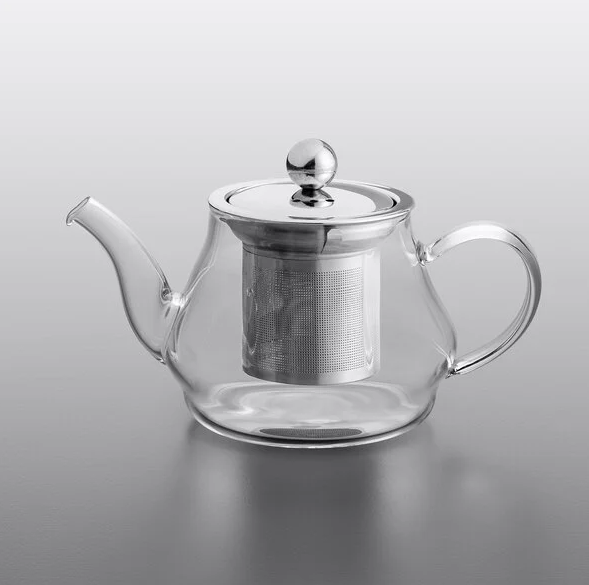What is Black Tea Good For?
Black tea was brought to Europe in the 16th century and to America in the 17th. It was the first real tea people in western countries have tried and today it's the most consumed tea in the world. Tea Association in the U.S.A. reports that in 2018 84% of all consumed tea was black[1]. Every tea-producing country in the world produces black tea—from Turkey to Vietnam, Kenya and England, Australia and Colombia. If black tea is so widely popular, why are we always talking about the benefits of green tea and rarely mentioning the benefits of black tea types? Is black tea healthy?
What is black tea?
Unlike green tea, black tea is oxidized. That means that the nutrient content is also different. However, unlike the common belief, black tea doesn’t need to be 100% oxidized, and some oolong teas can be oxidized more than black tea. Black tea contains thearubigins, theaflavins, flavonols and catechins[2]. Fresh tea leaves withered, then rolled, oxidized and dried. Oxidation is the important step in producing black tea because it changes the nutrient content and gives both color and flavor. There are other additional steps that some producers include, like smoking over different wood.What are popular black tea types?
The most popular black tea comes from India, Sri Lanka and China. Indian black teas from Assam are strong and malty, and those from Darjeeling are lighter, with a muscatel and floral aroma. Together, they often create one of the most popular tea blends in the world—English Breakfast. Sri Lankan black teas are usually classified into low, middle and high grown. For example, Nuwara Eliya black teas grow at approximately 2000 meters. The general rule says, the higher the altitude, the higher the quality, which is popular among most tea types. China is the home of many popular black teas. Lapsang Souchong, Keemun, Yingde Hong and black teas from Yunnan are all very different with flavors ranging from smoke, to chocolate. The most popular flavored black tea is Earl Grey, a blend of different black teas flavored with bergamot oil.How much caffeine is in black tea?
Black tea usually has more caffeine than green, oolong or white tea. However, black tea can also have less caffeine than green tea or white tea. A good example are Japanese shaded teas, that may have a higher caffeine content than some black teas. A cup of black tea will usually have between 30 and 100 mg of caffeine. One study showed that a maximum of 8 cups of black tea per day would “minimize any risk relating to excess caffeine consumption,[3]” and that drinking black tea has a good impact on health[4]. A research on caffeine content in Turkish black teas showed that a sample of Earl Grey had a much higher caffeine content, approximately 86 mg per cup compared to black tea with 71.4 mg. This might imply that even 5 cups per day might be too much for some people.What is black tea good for?
People often give an advantage to green tea if they mostly look for the benefits. However, any real tea has a whole range of benefits. Some of them are like those of green tea.1. Energy boost
There is usually more caffeine in black tea than in other tea types. Therefore it is usually a good replacement for coffee. Black tea contains amino acid L-theanine, that together with caffeine, makes you feel less jittery than coffee. L-theanine has calming properties and promotes relaxation and better sleep.2. Anti-cancer properties
The anti-cancer properties of tea are widely researched. Studies show that all real tea, not only green or black, have great potential in reducing the risk and helping in treatments. Out of many types of cancer, among the most researched ones in correlation to tea were ovarian cancer, pancreatic cancer, skin and colon cancer. One study reported that drinking 2 or more cups of black tea daily lowered the risk of ovarian cancer by 30%. The meta-analysis of studies concluded that “the consumption of black tea, in particular, which is rich in polyphenols, has been found to significantly reduce the risk of ovarian cancer[5],” being superior even to the healthy green tea. Another study showed that drinking black tea reduced “colon cancer risk in both men and women.”[6] Black tea might also decrease the risk of skin cancer,[7] and protect non-smoking women from lung cancer[8]. However, one of the side effects of drinking very large amounts of tea might be the interference with diagnosing pancreatic cancer[9].3. Black tea and diabetes
Research showed that black tea might have anti-oxidative and anti-inflammatory effects on people with Type 2 diabetes. Countries where black tea is a common popular drink have reduced rates of diabetes, suggesting black tea may help in prevention as well[10].4. Boosting immune system
Black tea might help boost immune system and improve body’s response to bacteria and viruses[11]. Flavonoids in black tea help reduce oxidative damage and keep cells healthy.5. Lower risk of heart diseases
Studies show that consuming black tea might lower high blood pressure and be beneficial in preventing heart attacks.” In one study, people that already suffered from a heart attack, but are drinking 2 cups of black tea per day, “had lower total and cardiovascular mortality during 3.8-year follow-up compared to individuals consuming less tea.[12]”6. Blends amazingly well with many other ingredients
Not a health benefit, but a benefit nevertheless. Black tea is great for blending with milk, creating lattes, milk teas, drinking with honey, sugar or agave syrup, lemon, fresh fruits and many spices and flowers. It’s the main base ingredient of milk tea including Teh Tarik and Chai.How to brew black tea?
You can steep the same black tea leaves 1-5 times. Pure Indian, African and Sri Lankan black teas are usually great for 1-2 infusions, Japanese and Korean for 1-3 and Chinese can give at least 3-5 great pots of tea. But, only if you use short steeping technique. Boil water and let it cool down to 194-203 degrees. Some black teas like Darjeeling do not tolerate boiling water very well because they are not 100% oxidized. For western-style brewing use 1 teaspoon of tea leaves, 200 ml of water and infuse for 3-5 minutes. For eastern-style use at least 5-7 grams of tea per 120-150 ml of water, preheat the teapot and brew for 30-60 seconds, then repeat and increase the steeping time. Unlike green, white or oolong tea, almost all black tea go well with a bit of milk. Easterners, however, drink tea pure.Disclaimer: This article is for informational purposes only. It’s not intended to replace medical advice, diagnosis or treatment. Every person is different and may react to different herbs and teas differently. Never use teas or herbs to treat serious medical conditions on your own. Always seek professional medical advice before choosing home remedies.
References:
[1] http://www.teausa.com/14655/tea-fact-sheet [2] https://www.ncbi.nlm.nih.gov/pmc/articles/PMC4055352/ [3] https://www.ncbi.nlm.nih.gov/pubmed/16855537 [4] https://www.ncbi.nlm.nih.gov/pubmed/16855537 [5] https://www.ncbi.nlm.nih.gov/pmc/articles/PMC5514950/ [6] https://www.ncbi.nlm.nih.gov/pmc/articles/PMC4055352/ [7] https://www.ncbi.nlm.nih.gov/pmc/articles/PMC4055352/ [8] https://www.ncbi.nlm.nih.gov/pmc/articles/PMC4055352/ [9] https://www.ncbi.nlm.nih.gov/pubmed/27402465 [10] https://bmjopen.bmj.com/content/bmjopen/2/6/e000648.full.pdf [11] https://www.infectioncontroltoday.com/infections/research-finds-black-tea-may-aid-bodys-defenses-against-bacteria-and-viruses [12] https://www.ncbi.nlm.nih.gov/pmc/articles/PMC3123419/
More from:
SLL



Leave a comment